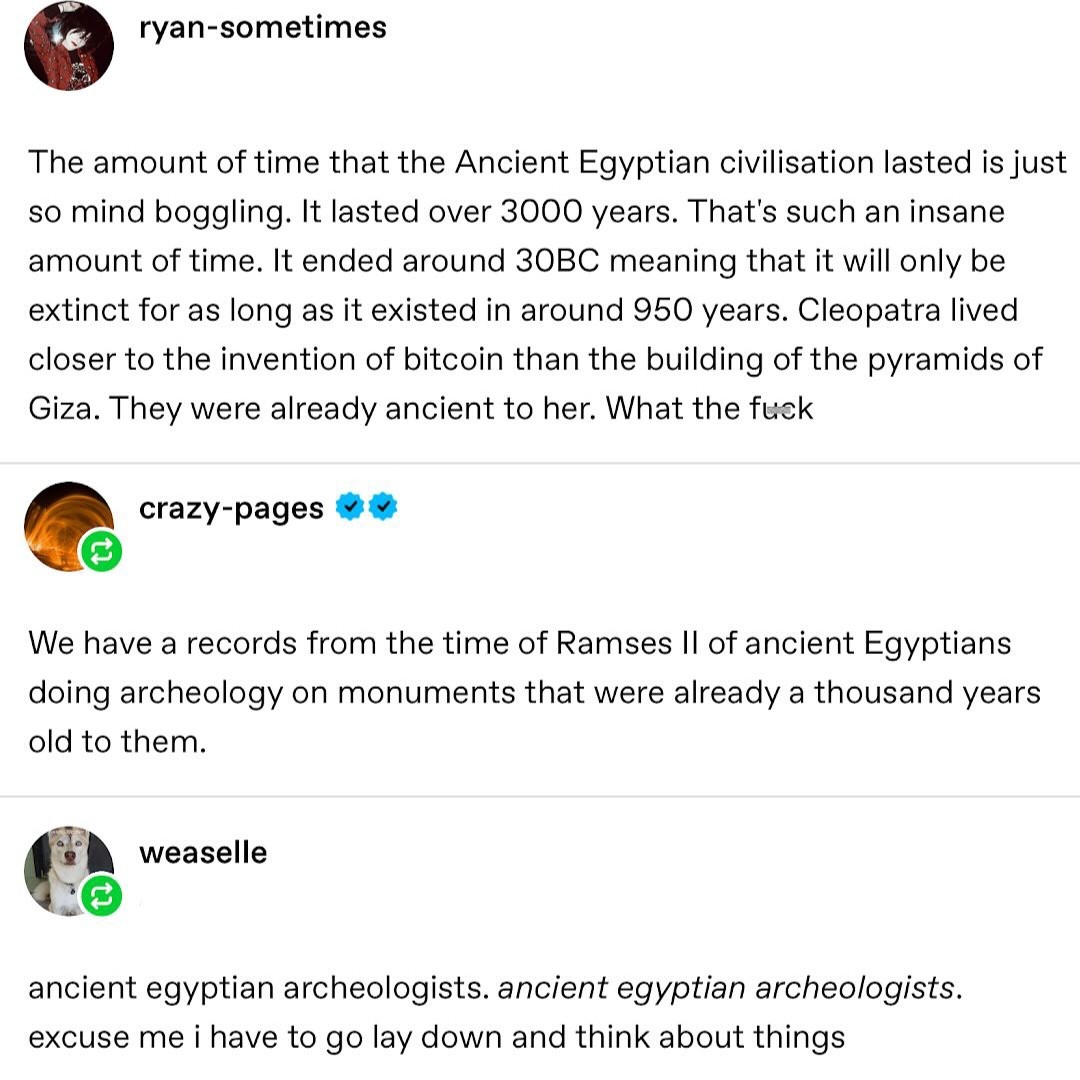Ennigaldi-Nanna lived in the mid 6th c. BCE, she was the daughter of Nabonidus, last king of the Neo-Babylonian empire just before Cyrus steamrolled through the whole place. She was the high priestess of Ur - and the first museum curator in History. Her dad, like many other kings between Sumer and Babylon, went around rebuilding temples that were up to 1500 years old in his time, but he picked up more stuff to bring back home.
Ennigaldi-Nanna built herself a special room with shelves where she lined up objects that were dated between 1400 and 2000 BCE, having them cleaned and restored, and she placed clay tablets next to them to explain what they were, where they came from, who made them. In three languages. In a room open to the public.
It's believed that she was present on sites when those objects were picked up. Some of those were from Ur, the city of her temple - her position as high priestess in that temple had been abandonned for a few hundred years before her temple was restored (because her dad was a big fan of the Moon god Nanna and this was his main temple for over a thousand years), so she may have just needed to look around and pick a shovel and a good brush. Nabonidus is also considered "the first serious archaeologist", antiquarian and antique restorer.
Some of the artifacts from Sumer and Babylon that are most famous today, oldest and best preserved, come from that museum. We found a 2500 year old museum, and we put it in a museum.
